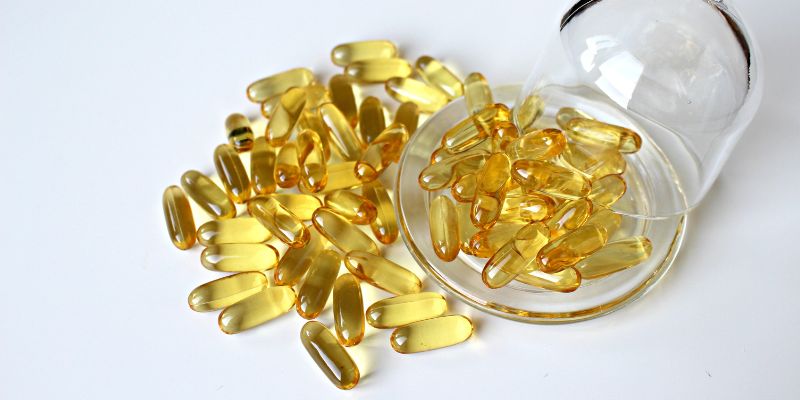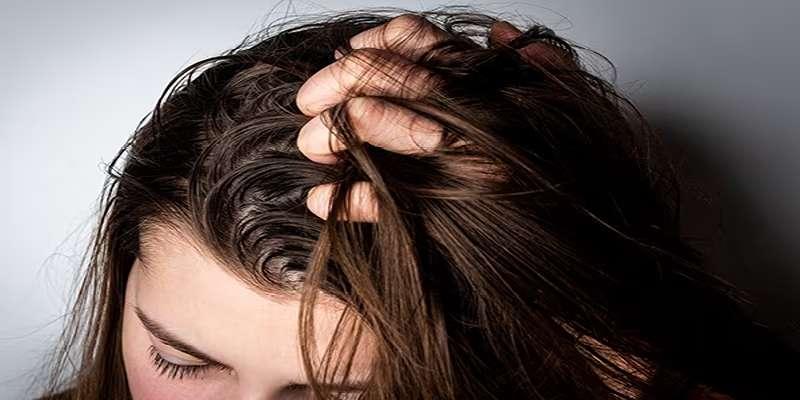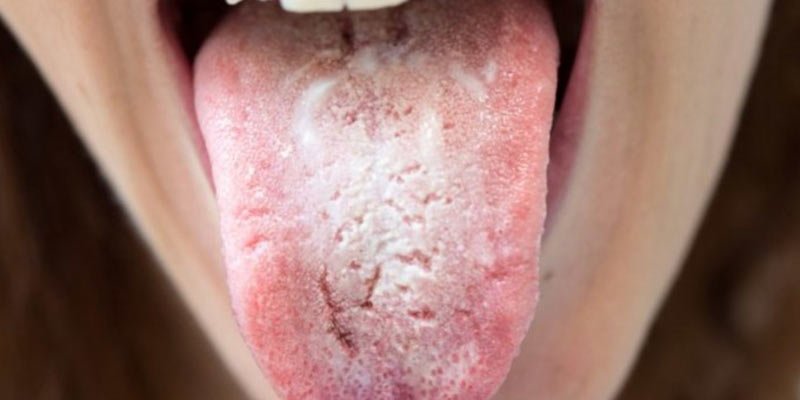What are the benefits of Fish Oil for Hair and How to Use It
Oct 17, 2023 By Nancy Miller
Fatty acids omega-3 are abundant in fish oil and improve the overall health. But did you know the oil is beneficial for your hair, too?
It's common to shed 50–100 hair strands every day. But, if this number exceeds, it may lead to baldness. Fish oil is one of the most effective methods to prevent hair loss. Fish oil aids hair growth, improves hair thickness, nourishes the hair follicles, reduces inflammation, and enhances hair shine.
So, if you are suffering from hair loss or want to improve hair growth, add fish oil to your diet and apply it to your scalp. Get into this article to learn more about the benefits of fish oil and how to use it.

Fish Oil Benefits For Hair: An Overview
For healthy hair, numerous individuals take supplements containing fish oil. Women who use antioxidant pills in addition to fish oil have denser hair. By boosting the circulation to the hair follicles, fish oil helps the follicles by providing them with more nutrients. Hair growth will be encouraged by this action.
Helps In Hair Growth
Fish oil helps to promote hair development by increasing the generation of epidermal papilla cells and enhancing blood flow to hair follicles. It increases the availability of all necessary nutrients, promoting hair growth. Fish oil fermented from mackerel lengthened the life of the hair shaft.
Increases The Hair Thickness
The mechanism of action of fish oil for thicker hair is to thicken the hair shaft. The oil might enhance the health of the hair and scalp and assist in keeping the scalp clean. It aids in defending the skin from inflammation and aging. After using fish oil pills for six months, women's hair became thicker. Over time, it causes individual hair strands to become thicker, giving the impression that the head has more hair.
Improves The Hair Growth Cycle
It also postpones the start of grey hair and enhances the cycle of hair growth throughout time. Applying a matured fish oil compound obtained from mackerel increased hair development. The primary omega-3 in the extract, DHA, also promoted the proliferation of dermal papilla cells (DPC), which are crucial for maintaining hair growth.
Balances The Sebum Production
Over time, omega-3 fatty acids assist in controlling sebum production and dispersion on the skin and scalp. Oils with Omega 3 fatty acids lessen itching and roughness. The sebum (oil) production on the scalp reduces irritation and itchiness.
Prevention Of Infections
It may aid in preventing hair infections because taking a fish oil supplement keeps hair follicles from being infected, which promotes hair growth. The oil gets deeper into your hair follicles when you use it right to your scalp, which retains them strong.

Enhances The Hair Shine
Additionally, fish oil enhances the hair's wellness, giving it a gentler, more pleasant, and glossier appearance. Because fish oil is high in nutrients, it feeds the hair cells. Nutrients that are given to follicles boost the condition of hair. Therefore, consuming supplements containing fish oil is a helpful approach to keep your hair looking healthy and shiny.
Reduces The Scalp Irritation
Fish oil aids in defending the scalp from oxidative damage. It lessens scalp inflammation, which helps shield the scalp from irritation and dandruff. Increased blood circulation in the scalp due to the anti-inflammatory qualities encourages faster hair growth.
Reduces The Hair Loss And Prevents Hair Thinning
In addition to harming your looks, hair loss can result in a loss of self-confidence and a sense of uncertainty. The advantages of fish oil capsules for hair include stopping baldness, hair thinning, and hair loss. They also fix split ends brought on by regular use of toxins or heating appliances.
Nourishes The Scalp
The greatest remedies for dry scalp are omega-3 fatty acids found in fish oil. Dry, rough scalps get nutrition and are maintained by omega 3. It strengthens and nourishes hair. These fatty acids are good for the scalp because they aid in the recovery of nutrients that have been depleted over time,
What Is Fish Oil?
Omega-3s, important fatty acids that the body cannot produce alone, are abundant in fish oil. Fish oil can be made from oily fish, including mackerel and herring. It is abundant in docosahexaenoic acid (DHA) and eicosapentaenoic acid (EPA), two significant omega-3 fatty acids.
Thus, numerous items have varying amounts and kinds of omega-3 fatty acids. It can also be purchased as an additive, fluid, or capsule. Supplemental fish oil has been suggested for cardiac and psychological well-being, although most of these uses lack substantial proof.
What Are The Different Sources Of Fish Oil?
These are the sources from which fish oil is extracted:
- Snapdles
- Prawn
- Tilefish
- Shelly
- Whale
- Swordfishing
- Giant Silverfish
- Snapper red
How To Use Fish Oil For Hairs?
- Consuming oily seafood like mackerel, salmon, and tuna is one of the easiest ways to integrate fish oil into your daily lifestyle.
- Fish oil can be applied topically to the hair shaft, skin roots, and skull. However, be mindful that it smells awful.
- Taking fish oil capsules for hair development is a popular and scentless approach to including fish oil in your nutritional plan.
How Much Fish Oil Can You Take?
The optimal amount of fish oil to eat for hair development has yet to be determined. Taking 250–500 mg of omega-3 fatty acids recommended daily. The requirements of everybody also determine how much to take.
Before considering an additional product to your regular regimen, speak with your doctor. They will consider your prescriptions and other supplements you use to determine if a new supplement would be a beneficial addition to your present regimen. Your physician can then recommend the appropriate dosage of fish oil to achieve long-term health objectives.
Possible Side Effects Of Fish Oil (Omega-3)
- Fish oil is a popular omega-3 supplement. Because it odors bad and interferes with digestion, consuming fish oil can have negative consequences and potential omega-3 negative impacts.
- Other possible adverse effects include diarrhea and nausea.
- Heart irregularities are more likely to occur when fatty fish are consumed or when fish oil supplements are taken orally.
- Sweat odor and foul breath are two possible side effects of fish oil.
- People with bleeding-related conditions or those on anticlotting treatments should avoid excessive amounts of fish oil since they may interfere with blood clotting.
- An increased risk of prostate cancer is associated with large omega-3 use.
Conclusion:
Hair grows to its full length and then sheds. It is normal and part of the hair growth cycle. But, the problem arises when the natural hair growth cycle gets disturbed, resulting in more hair falling each day or becoming thin.
Fortunately, the condition can be treated by taking different nutritional supplements as fish oil. The oil improves hair growth, makes it thick, increases shine, and balances sebum production. Besides that, fish oil's other benefits are preventing infections and reducing scalp irritation.
-
 May 01, 2023
May 01, 2023How to Get Rid of Greasy Hair
Having greasy hair can be a major source of frustration, but our professional tips and solutions will guide you through controlling this problem. Find out how to get rid of greasy hair today!
-
 Nov 28, 2023
Nov 28, 2023Candida Diet Unveiled
Guide to Candida diet as a strategy to combat fungal infections. Investigate anti-Candida supplements to foster an healthier lifestyle.
-
 Sep 27, 2023
Sep 27, 2023Fitness Hacks, Recommended By Personal Trainers:
Personal trainers recommend fitness hacks to help you stay strong and fit. These tips include setting realistic goals, getting enough rest, listening to your body, staying hydrated, getting vaccinated, mixing it up, tracking progress, taking rest days and practicing proper form.
-
 May 01, 2023
May 01, 2023Benefits of Zucchini
Did you know zucchini offers a host of health benefits? Find out why this summer squash should become your go-to vegetable and get inspired with creative recipes featuring zucchini as the star ingredient.
